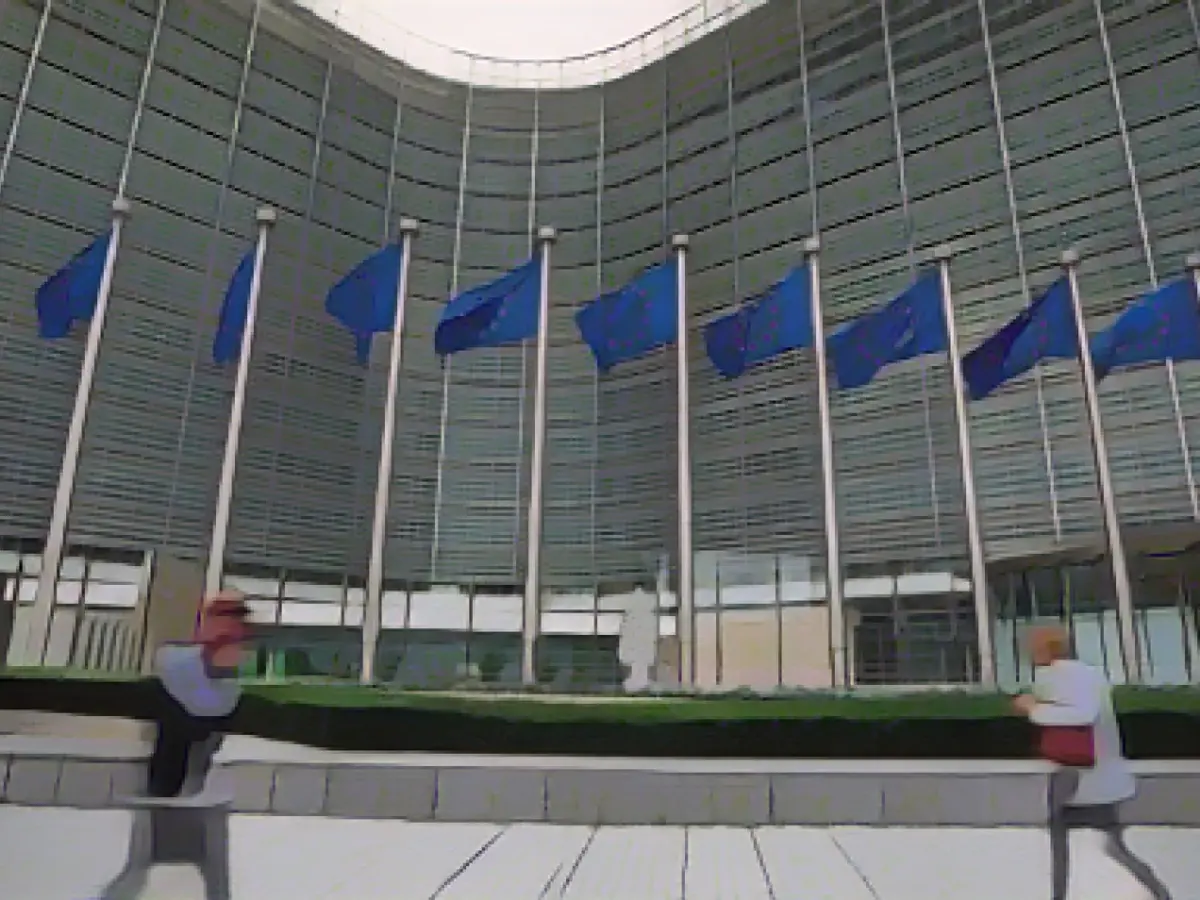EU summit - EU meets on billions and Ukraine
Is there a lot of excitement and then a happy ending after all? Or will there be a big row and debacle this time? Shortly before the last regular EU summit of the year, it is completely unclear how the heads of state and government will part company after their deliberations.
The two-day meeting in Brussels will focus on the European Commission's proposal to open EU accession negotiations with Ukraine and Moldova. Discussions are also planned on a possible increase in the long-term EU budget.
According to the EU Commission, this should be supplemented by a new financing instrument for Ukraine, among other things. 50 billion euros could thus be made available to the country attacked by Russia over the next few years.
It is unclear whether far-reaching decisions can be made at the summit. This is due in particular to blockade threats by Hungarian head of government Viktor Orban. He has made it clear several times in recent weeks that, in his view, no decisions should be taken on the budget and EU accession negotiations with Ukraine at present - for example, because the country attacked by Russia has not yet fulfilled all reform requirements. As decisions on both issues must be made by consensus, Orban could theoretically block them with a veto.
Veto as leverage?
EU diplomats believe it is possible that Orban's comments are simply intended to increase the pressure to release further frozen EU funds for his country. However, others point out that the right-wing populist has recently repeatedly claimed that he would not back down on the issue of Ukraine even after the release of funds.
In a letter to EU Council President Charles Michel, Orban recently wrote that he urgently requested that no resolutions be planned for the summit, as this would lead to failure in view of the lack of consensus. Such a counterproductive scenario must be avoided in the interests of EU unity.
On Wednesday, shortly before the summit, the EU Commission announced that it would release ten billion euros in frozen EU funds for Hungary because reform requirements had been met with judicial reforms. However, other budget funds amounting to almost twelve billion euros and billions in coronavirus aid remain blocked.
German government: fresh money only for Ukraine
German Chancellor Olaf Scholz (SPD) is expected to attend the summit. He has already signaled that he supports a decision to start EU accession negotiations with Ukraine.
However, the German government is opposed to the EU Commission's proposal to make additional payments of billions into the EU budget by the end of 2027, for example to better promote the competitiveness of industry. In Germany's view, additional funds should only be earmarked for supporting Ukraine and other previously unplanned expenditure should be financed through reallocations.
Ukraine warns the EU against saying no
The government in Kiev recently warned of "devastating consequences" if the EU summit on the start of EU accession negotiations with Ukraine fails due to a veto by Hungary. If there is no positive decision, this would be extremely demotivating for the people of Ukraine, said Foreign Minister Dmytro Kuleba at the beginning of the week. It would also give the impression to the outside world that the EU is not in a position to make decisions of a historic nature.
With a view to the desired start of accession negotiations with the EU, Kuleba argued that his country had fulfilled a large part of its outstanding obligations. In addition to anti-corruption laws, these included the rules on education and the use of the languages of national minorities that Hungary had demanded.
Orban refers to summit decision
However, Orban sees the open Ukrainian admission that it has not yet fully met all the requirements as a point in itself. He argues that the EU Commission's proposal for the start of accession negotiations is not compatible with a summit decision from June 2022. This states that further steps in the accession process should only be decided once "all these conditions are fully met".
Supporters of a positive decision, on the other hand, point out that the start of EU accession negotiations would primarily be a symbolic step, as the talks are likely to take many years and Ukraine's accession before the end of the Russian war of aggression is considered impossible.
Read also:
- Year of climate records: extreme is the new normal
- Precautionary arrests show Islamist terror threat
- UN vote urges Israel to ceasefire
- SPD rules out budget resolution before the end of the year
- The EU summit in Brussels will discuss the EU Commission's proposal to commence EU accession negotiations with Ukraine and Moldova, as well as a potential increase in the long-term EU budget.
- The European Commission suggests that a new financing instrument for Ukraine could provide up to 50 billion euros over several years, aimed at supporting the country following its attack by Russia.
- Hungarian Prime Minister Viktor Orban has expressed opposition to decisions on the EU budget and EU accession negotiations with Ukraine at this time, due to Ukraine's unfulfilled reform requirements.
- Orban's stance could potentially block these decisions at the EU summit, given that consensus is required, as stipulated by the EU's decision-making process.
- Some EU diplomats believe Orban may be trying to increase pressure to release further funds for Hungary, while others argue that Orban has recently reaffirmed his unwillingness to yield on the issue of Ukraine.
- EU Council President Charles Michel has received a letter from Orban requesting no resolutions be planned for the summit due to lack of consensus, to ensure EU unity and avoid a counterproductive situation.
- Ten billion euros in frozen EU funds have been released for Hungary, following the completion of judicial reforms, but other budget funds and coronavirus aid remain blocked.
Source: www.stern.de








